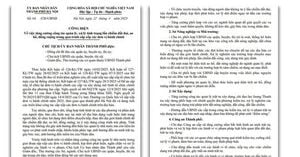François Bayrou, the French politician and current mayor of Pau, is reportedly "upset" and "stupefied" after learning about the traumatic experiences of his daughter, Hélène Perlant, who revealed she was a victim of violence during a summer camp nearly 40 years ago. This shocking disclosure came in an interview published in Paris Match on April 22, 2025, where Perlant detailed the abuse she suffered at the hands of a priest associated with the same congregation that runs the Notre-Dame de Bétharram establishment.
In her interview, Hélène Perlant, now 53, stated that she had never shared her experience with her father, who was unaware of her suffering until recently. "He does not know that I am a victim, and he does not know that I am going to testify as a victim," she explained, emphasizing her decision to keep silent for three decades. Perlant reflected on her silence, suggesting that she may have subconsciously wanted to protect her father from political backlash he faced locally.
Her testimony is also featured in the upcoming book, Le Silence de Bétharram, authored by Alain Esquerre, the spokesperson for a collective of victims from the Bétharram institution. The book is set to be released on April 24, 2025, and it delves into the violent and sexual abuses suffered by young students at the institution, shedding light on a dark chapter of its history.
According to Esquerre, over 200 complaints have been filed against the institution regarding these abuses, although many are believed to be time-barred. The collective of victims has been vocal in their pursuit of justice, and their stories have sparked a significant public outcry.
François Bayrou is scheduled to appear before a parliamentary commission of inquiry on May 14, 2025, to address the allegations surrounding the institution and his potential knowledge of the abuses. The inquiry has been formed in the wake of the scandal, which has drawn national attention and raised questions about accountability within the Catholic Church.
Earlier this month, a former gendarme and an ex-judge who investigated initial complaints against a priest from the institution claimed that Bayrou had intervened in the case. However, Bayrou has firmly denied these allegations, stating, "I have never, not once in my life and throughout my political life intervened in a judicial matter." He has consistently maintained that he was unaware of the physical and sexual assaults reported by former students.
Hélène Perlant's revelations have prompted discussions about the broader societal issues of denial and complicity in cases of sexual violence. In her interview, she stated, "The question is about individual and collective denial, not about lies." This perspective highlights the complex dynamics at play in situations where victims are often silenced or ignored.
In the book, Perlant recounts a particularly harrowing incident from her time at the summer camp. She described how a priest, who had previously criticized her behavior, violently attacked her. "He dragged me on the ground for several meters and beat me with the force of a 120-kilo man," she recalled, adding that the assault left her traumatized and ashamed.
Despite the presence of approximately 40 other campers at the time, no one intervened to help her, a fact that underscores the pervasive culture of silence and complicity that often surrounds such abuses. Perlant's story is not an isolated incident; it reflects a systemic issue that many survivors have faced, where fear and shame prevent them from speaking out.
The public's reaction to Hélène Perlant's testimony has been one of shock and support, as many rally behind the victims seeking justice. The forthcoming parliamentary inquiry is seen as a critical step toward accountability, with many hoping it will lead to meaningful changes within the institution and the broader Church.
As the inquiry approaches, the focus remains on the need for transparency and truth. Bayrou's upcoming testimony will be closely scrutinized, as it could have significant implications not only for his political career but also for the ongoing fight for justice by the victims of Bétharram.
In the context of this scandal, the importance of addressing historical abuses and supporting survivors cannot be overstated. The revelations from Hélène Perlant and others have opened a necessary dialogue about the need for systemic change within institutions that have long been shielded from scrutiny.
The upcoming publication of Le Silence de Bétharram is anticipated to further illuminate the extent of the abuses that occurred and the institutional failures that allowed them to persist for decades. As more victims come forward, the hope is that their stories will lead to a reckoning that prioritizes the voices of survivors and fosters a culture of accountability.
Ultimately, the case of François Bayrou and the Bétharram institution serves as a poignant reminder of the urgent need to confront and address the realities of sexual violence within all areas of society. The path to healing and justice is fraught with challenges, but the courage of those who speak out is a vital step toward a future where such abuses are no longer tolerated.








